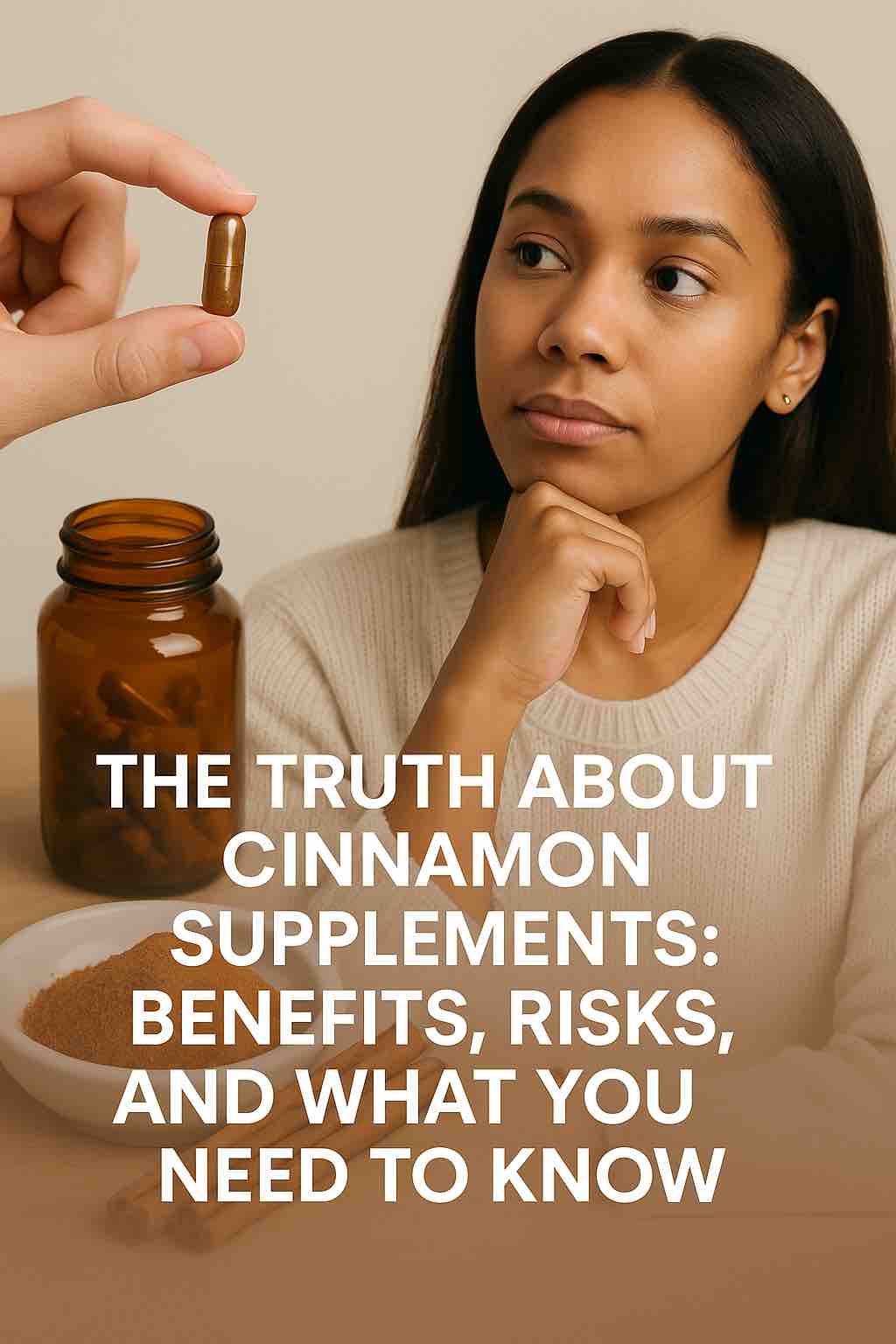
Cinnamon is one of the world’s most beloved spices, prized not just for its warm, sweet flavor but also for its historical role in traditional medicine across cultures. In recent years, it has surged in popularity as a dietary supplement, marketed for a wide range of health benefits including blood sugar control, weight loss, and inflammation reduction. However, a growing body of research suggests that while culinary use of cinnamon is generally safe, high-dose or prolonged supplement use may carry significant health risks.
Understanding the Types of Cinnamon
There are two main varieties of cinnamon available on the market:
- Cassia Cinnamon (Cinnamomum aromaticum): The most commonly available type in North America, it contains high levels of coumarin, a naturally occurring compound that can be harmful in large quantities.
- Ceylon Cinnamon (Cinnamomum verum): Often labeled as “true cinnamon,” this variety has lower coumarin levels and is considered safer for regular use.
Potential Health Benefits: What Does the Science Say?
Some preliminary studies suggest cinnamon might help with:
- Blood Sugar Control: Some evidence hints at improved insulin sensitivity and reduced fasting blood glucose.
- Weight Loss: There’s limited data suggesting a modest effect, often in conjunction with other lifestyle changes.
- Anti-inflammatory and Antioxidant Effects: Compounds like cinnamaldehyde may help fight oxidative stress and inflammation.
- Allergic Rhinitis Relief: Early-stage research indicates potential when used in nasal sprays containing Ceylon cinnamon.
However, the National Center for Complementary and Integrative Health (NCCIH) states that current research does not conclusively support cinnamon for treating any medical condition.
Risks of Overconsumption: What You Need to Watch Out For
A recent study published in Food Chemistry: Molecular Sciences raised new concerns about the overuse of cinnamon, especially in supplement form. The study focused on cinnamaldehyde, the active compound in cinnamon, and found:
- High Bioavailability: Cinnamaldehyde is 100% bioaccessible in both fasted and fed states.
- Drug Interaction Risk: It activates receptors involved in drug metabolism, which could alter the effectiveness of prescription medications.
Additional concerns include:
- Coumarin Toxicity: Cassia cinnamon’s high coumarin content can lead to liver damage and increase bleeding risks, particularly in individuals on anticoagulant medications.
- Potential Interactions: Cinnamon may interfere with medications for cancer, hypertension, HIV/AIDS, and depression, as well as supplements like turmeric, ginseng, and ginkgo biloba.
- Lead Contamination: The FDA recently flagged several cinnamon products for elevated lead levels, raising additional safety concerns.
Who Should Be Especially Cautious?
People with the following conditions should consult a healthcare provider before taking cinnamon supplements:
- Liver disease
- Cardiovascular conditions (especially if on blood thinners)
- Diabetes (if on glucose-lowering medication)
- Cancer (undergoing chemotherapy)
- HIV/AIDS
- Depression (on SSRIs or other psychiatric medications)
Culinary Use: Is It Still Safe?
Yes, the consensus remains that small amounts used in food pose little to no risk for the general population. A sprinkle in coffee or on oatmeal is unlikely to cause harm. The concern lies in concentrated doses over extended periods.
Key Takeaways
- Cinnamon offers some promising health benefits but should not be viewed as a cure-all.
- The form, dosage, and duration of use significantly impact safety.
- Choose Ceylon cinnamon when possible, especially for frequent use.
- Always consult a healthcare provider before starting supplements, particularly if you take prescription medications.
- Stay informed about product recalls and safety warnings from trusted authorities like the FDA.
Final Thoughts
Cinnamon can be a delightful and healthful addition to your diet when used in moderation. But like many “natural” products, its potential to interact with medications and cause harm when misused should not be underestimated. Be cautious, informed, and consult your healthcare provider before introducing cinnamon supplements into your wellness routine.
FAQs: Cinnamon Supplements – Benefits and Risks
1. What is the difference between Cassia and Ceylon cinnamon?
Cassia cinnamon is more common and contains higher levels of coumarin, which can be toxic in large amounts. Ceylon cinnamon, known as “true cinnamon,” has lower coumarin levels and is generally safer for regular use.
2. Are cinnamon supplements effective for managing diabetes?
Some small studies suggest cinnamon might help lower blood sugar, but the evidence is inconclusive. The NCCIH does not currently recommend cinnamon as a treatment for diabetes.
3. Is it safe to take cinnamon supplements daily?
Daily use of cinnamon supplements can pose risks, especially if they contain Cassia cinnamon. Long-term, high-dose use may affect liver function or interact with medications. Consult your doctor before beginning any regimen.
4. Can cinnamon interact with medications?
Yes. Cinnamon, especially its compound cinnamaldehyde, can interfere with drugs metabolized by the liver, including blood thinners, diabetes medications, and some cancer or psychiatric drugs.
5. What is considered overconsumption of cinnamon?
There’s no exact threshold, but the concern arises with concentrated supplements taken regularly over weeks or months. Culinary use, like sprinkling on food, is generally safe.
6. Are there any groups of people who should avoid cinnamon supplements?
Yes. People with liver disease, those on anticoagulants, chemotherapy, or other chronic condition treatments should avoid supplements unless approved by a doctor.
7. Can cinnamon be harmful during pregnancy?
There is limited research on cinnamon use during pregnancy. While culinary use is fine, high-dose supplements are best avoided unless prescribed by a healthcare provider.
8. What are the symptoms of cinnamon overuse or toxicity?
Potential signs include liver issues, bleeding disorders, or allergic reactions. If you’re on medication, watch for side effects like bruising or abnormal bleeding.
9. How can I ensure I’m using a safer form of cinnamon?
Choose Ceylon cinnamon over Cassia. Labels might specify the source; if not, assume it’s Cassia. When in doubt, ask the manufacturer or opt for verified products.
10. Should I trust cinnamon supplements on the market?
Be cautious. Dietary supplements are not tightly regulated by the FDA. Look for third-party tested products and always consult your doctor before using them.









